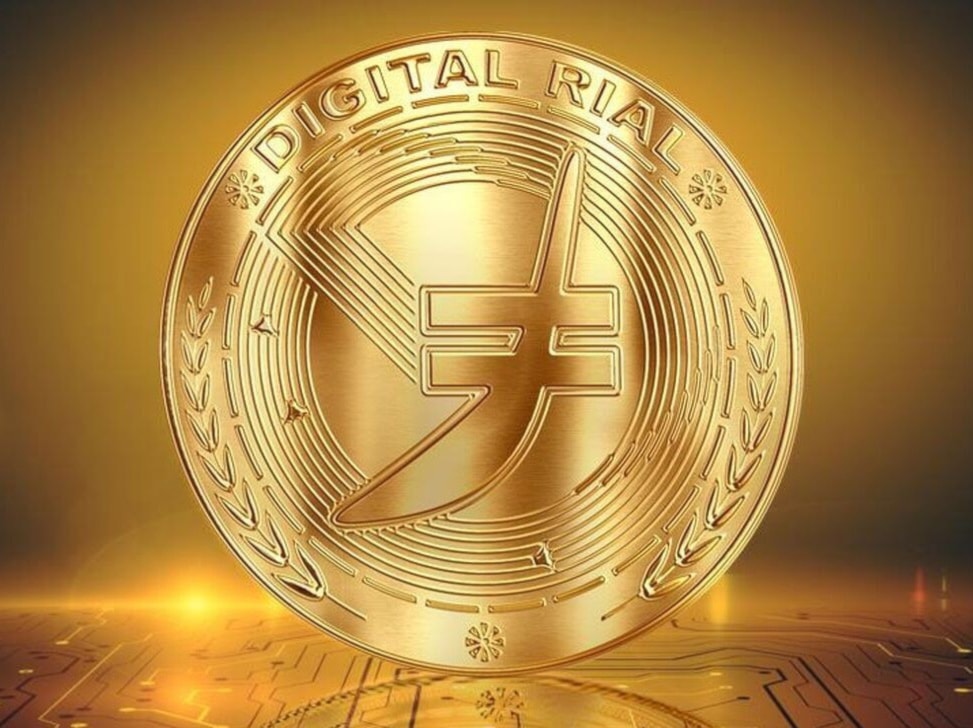Iran Central Bank governor announces plan to launch digital rial
The governor of the Central Bank of Iran stresses the importance of the Digital Rial and the creation of an intelligent financial system.
-

Image of the Iranian digital rial in a generated picture, undated (WikiCommons)
The Central Bank of Iran plans to introduce its digital currency, the Digital Rial, as part of a broader initiative to modernize the country's banking infrastructure and enhance international financial collaboration.
Mohammad Reza Farzin, Governor of the Central Bank of Iran, announced plans to launch the Digital Rial at the 11th Annual Conference on Modern Banking and Payment Systems.
During the event, Farzin described the conference as a platform to assess current policies and chart the future direction of the banking system. "As the Governor, this platform allows me to evaluate strategies and set the course ahead. We will incorporate the insights shared here into our policymaking," he said.
Farzin highlighted the strengths and challenges of Iran's banking system, underscoring its strong digital infrastructure and noting that "Iran's Shetab payment network, with transactions processed in under two seconds, is among the most efficient in the region."
He confirmed the upcoming launch of the Digital Rial, emphasizing the Central Bank's dedication to advancing modern banking practices.
"Developing innovative banking systems is a central bank's responsibility worldwide, and we are determined to fulfill this duty in Iran," Farzin added.
ACU-MIR system alternative to SWIFT
Addressing international banking relations, Farzin acknowledged the challenges posed by sanctions but highlighted the progress being made in overcoming them.
"Sanctions remain a significant obstacle, but we've made considerable progress in recent years," he said, pointing to the implementation of the "ACU-MIR" system as an example.
The ACU-MIR system, designed to promote Asian financial cooperation, serves as an alternative to SWIFT, facilitating transactions with countries like India and Pakistan.
Farzin explained that the system became fully operational on October 2, enhancing Iran's ability to navigate and manage the impact of sanctions more effectively.
"We've replaced SWIFT with this platform and strengthened our ties with BRICS, which is shaping global trade with a strategic plan through 2025," he said, adding that the plan focuses on expanding the use of local currencies, creating opportunities for Iran to integrate into the system.
He noted that China and Russia are already making efforts in this direction, aiming to settle transactions using BRICS currencies.
Farzin also mentioned a cross-border settlement platform still in its early stages, which could further streamline international financial transactions.
Read next: Iran unveils digital currency to boost payment infrastructure
Iran and Russia integrate bank card systems
On regional connectivity, he outlined efforts to integrate Iran's Shetab payment network with Russia's MIR system, enhancing financial ties between the two countries.
"Recently, Shetab connected with Russia's MIR, and several banks are now operational on the system," he said.
On November 12, Iranian media reported that Iranian bank cards can be used in Russia, showcasing an Iranian card being used to withdraw cash from an ATM in Russia, as per state television channel IRINN.
This development was made possible through the connection of Iran’s interbank network, Shetab, with Russia’s Mir system, the channel explained.
Presently, Iranians can withdraw money in Russia, and in the future, they will also be able to use their cards for in-store payments, the report added. "The plan is also going to be implemented in other countries that have a wide range of financial and social interactions with Iran, for example, Iraq, Afghanistan, and Turkey," it stressed.
Iran and Russia have both worked to mitigate the impact of sanctions on their economies. Since the beginning of the war in Ukraine in 2022, Moscow has been hit with increasing sanctions, prompting a closer partnership with Tehran. Ukraine and its Western allies have accused Iran of providing Russia with drones and missiles for use in the war. In June, Tehran and Moscow signed a deal aimed at enhancing their cooperation in the banking industry.
It is worth noting that more international organizations, such as BRICS and the Shanghai Cooperation Organisation (SCO), are in the process of establishing alternative trade systems and monetary bodies to ones dominated and influenced directly by the United States and Western countries, which have used sanctions to pressure nations that challenged Western influence.

 4 Min Read
4 Min Read








